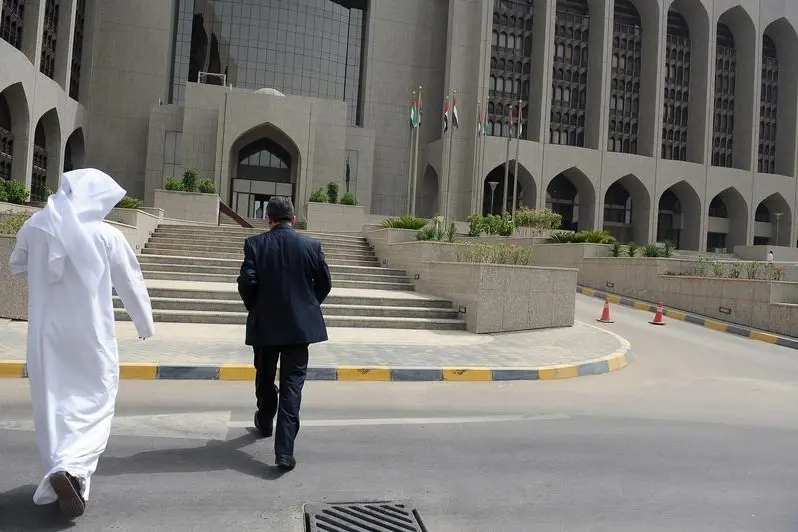PHOTO
The measures taken by the Central Bank of the UAE regarding the relaxation of Basel III regulations will help lenders weather the tough economic conditions and avoid factious non-performing loans (NPLs), senior bankers said.
Ahmed Mohammed Abdelaal, CEO of Mashreqbank, said there is currently not much change in NPLs at their bank.
"Measures taken by the regulator in terms of accounting standards under Basel III, which have been postponed, will help banks to combat and provide flexibility to clients. The relief package will help clients to weather the current storm and it will also help that NPLs do not accelerate, he said.
"We have not seen much of a change [in NPLs] as far as Mashreq is concerned and haven't seen much change with regards to micro and macro scenarios. The current measure that has been taken by the regulator for banks will help weather storm and avoid factious inflation of NPL numbers."
The central bank last week doubled the size of its stimulus package to Dh256 billion in order to increase liquidity, support the banking sector and economy as a whole.
While addressing a webinar, Abdelaal said the central bank has come up with great framework to avoid impairments.
He noted that the local banking sector is resilient to help overcome the current challenge of the Covid-19 pandemic.
"High level of digitalisation among UAE banks and regulatory support from the central bank has fortified the banking sector to deal with the current situation. The local banking sector is resilient to support the economy and all of its stakeholders," he said.
He pointed out that certain sectors will benefit as economies will accelerate post-Covid-19, including technology, the Internet of Things, digitalisation, blockchain, distance learning, healthcare and food security and related sectors.
"All this will drive greater focus on localisation, so local manufacturing will also benefit a lot."
Global ratings agency Moody's Investors Service said the measures taken the central bank will support local banks' liquidity and limit their likely material assets quality deterioration because of the coronavirus outbreak.
"However, relaxing the liquidity buffer requirement and cash reserve requirement is likely to be unfavourable towards banks' unsecured ucreditors because it risks weakening the banks' resilience," said Mik Kabeya, AVP-analyst at Moody's.
The regulatory relief will also soften the impact of Covid-19 on banks, he added.
Abbas Basrai, partner and head of financial services at KPMG Lower Gulf, said UAE banks will have to closely examine their business continuity plans, in light of the current Covid-19 threat.
"The central bank has been very supportive of the financial services sector in light of the disruption caused by the pandemic. But the banking sector may have to rely on a combination of external support and internal resilience-building to emerge unscathed. Digital transformation and regulatory compliance are likely to play a pivotal role in enabling banks to navigate the challenges that lie ahead," he said.
Copyright © 2020 Khaleej Times. All Rights Reserved. Provided by SyndiGate Media Inc. (Syndigate.info).
Disclaimer: The content of this article is syndicated or provided to this website from an external third party provider. We are not responsible for, and do not control, such external websites, entities, applications or media publishers. The body of the text is provided on an “as is” and “as available” basis and has not been edited in any way. Neither we nor our affiliates guarantee the accuracy of or endorse the views or opinions expressed in this article. Read our full disclaimer policy here.












